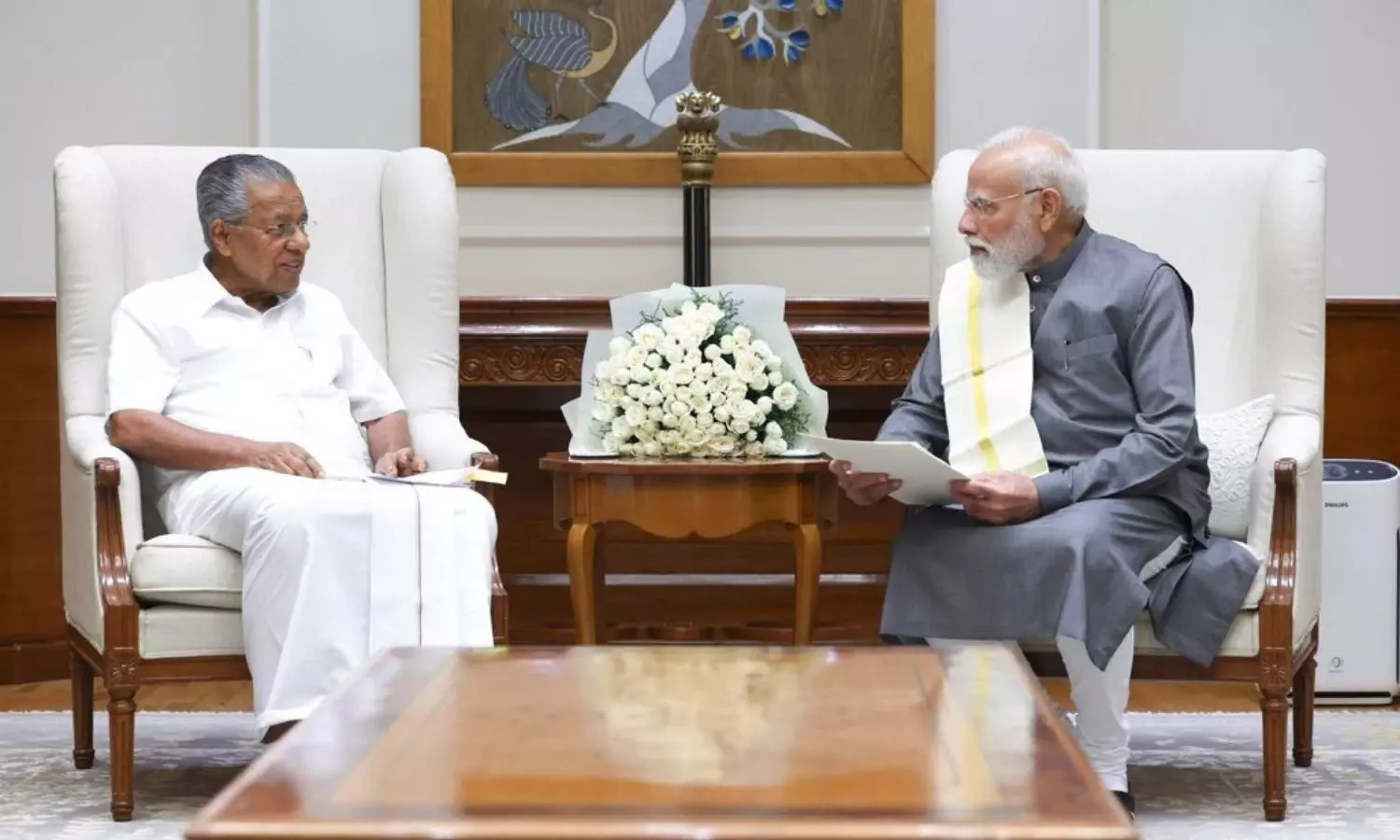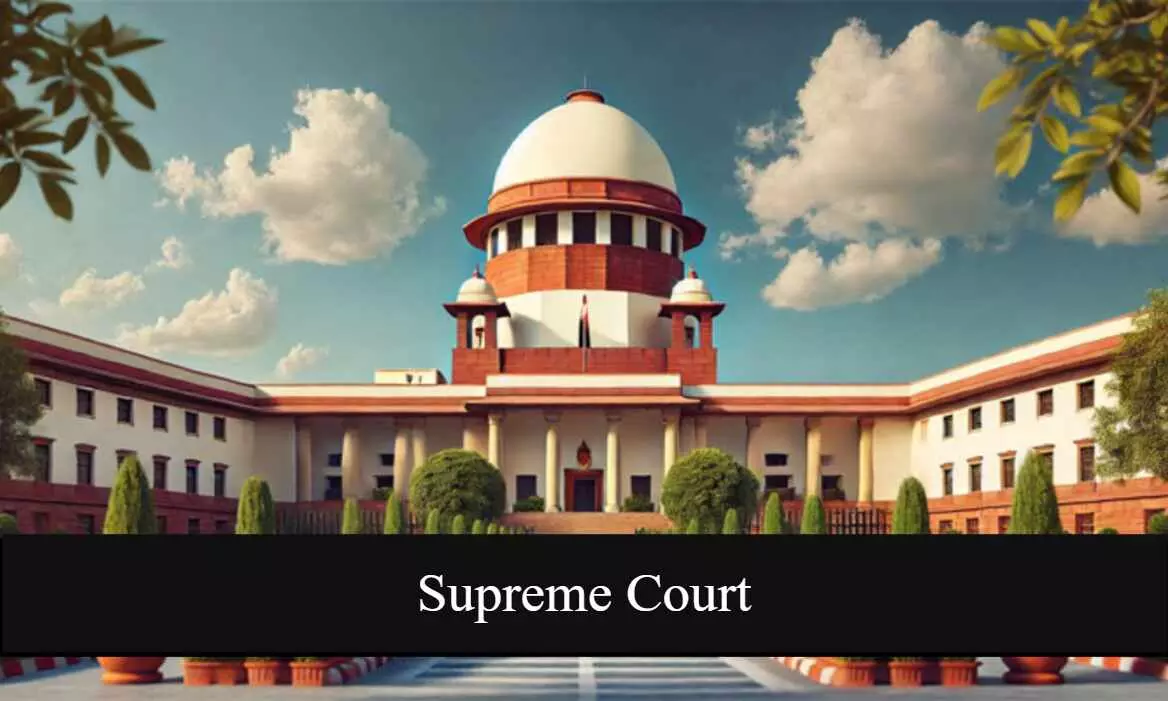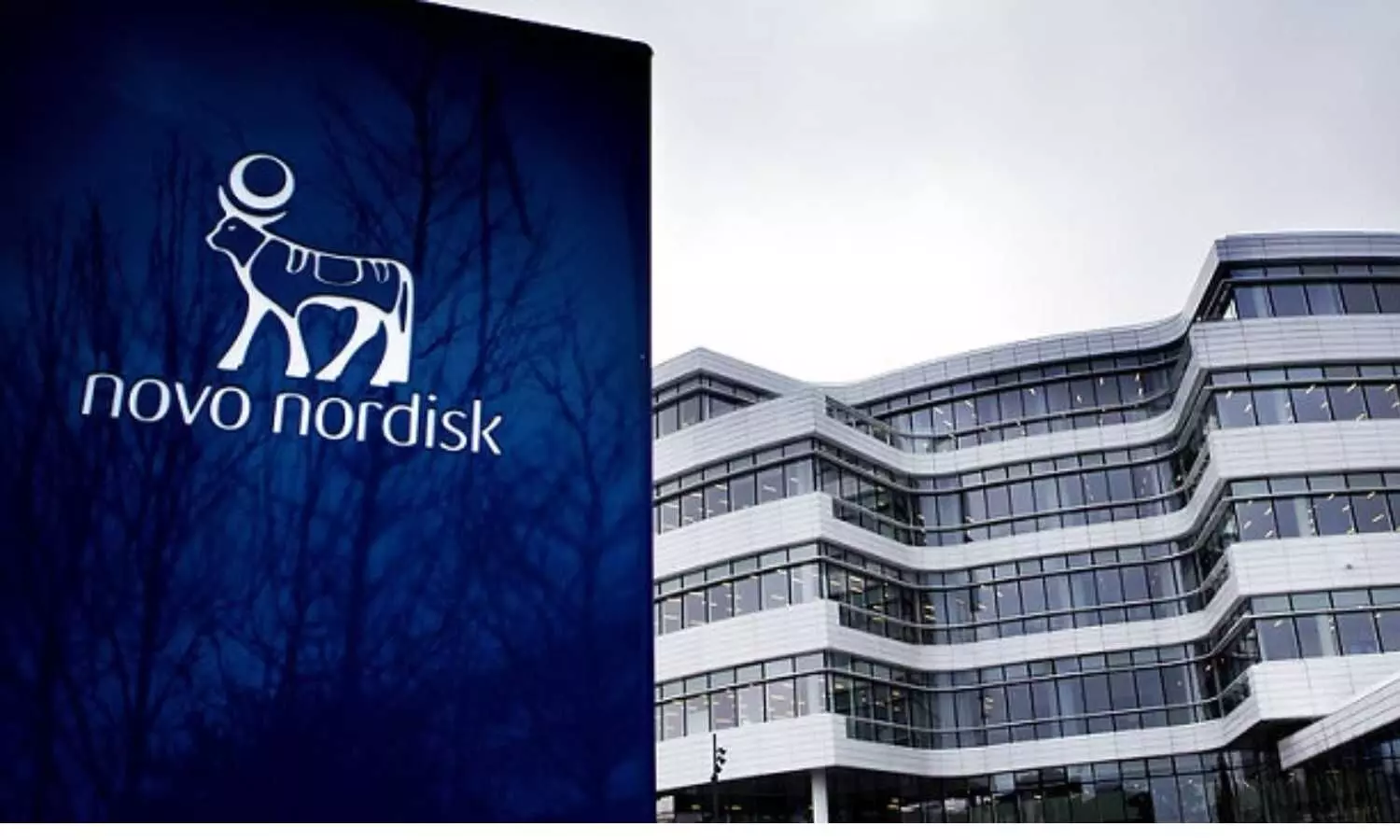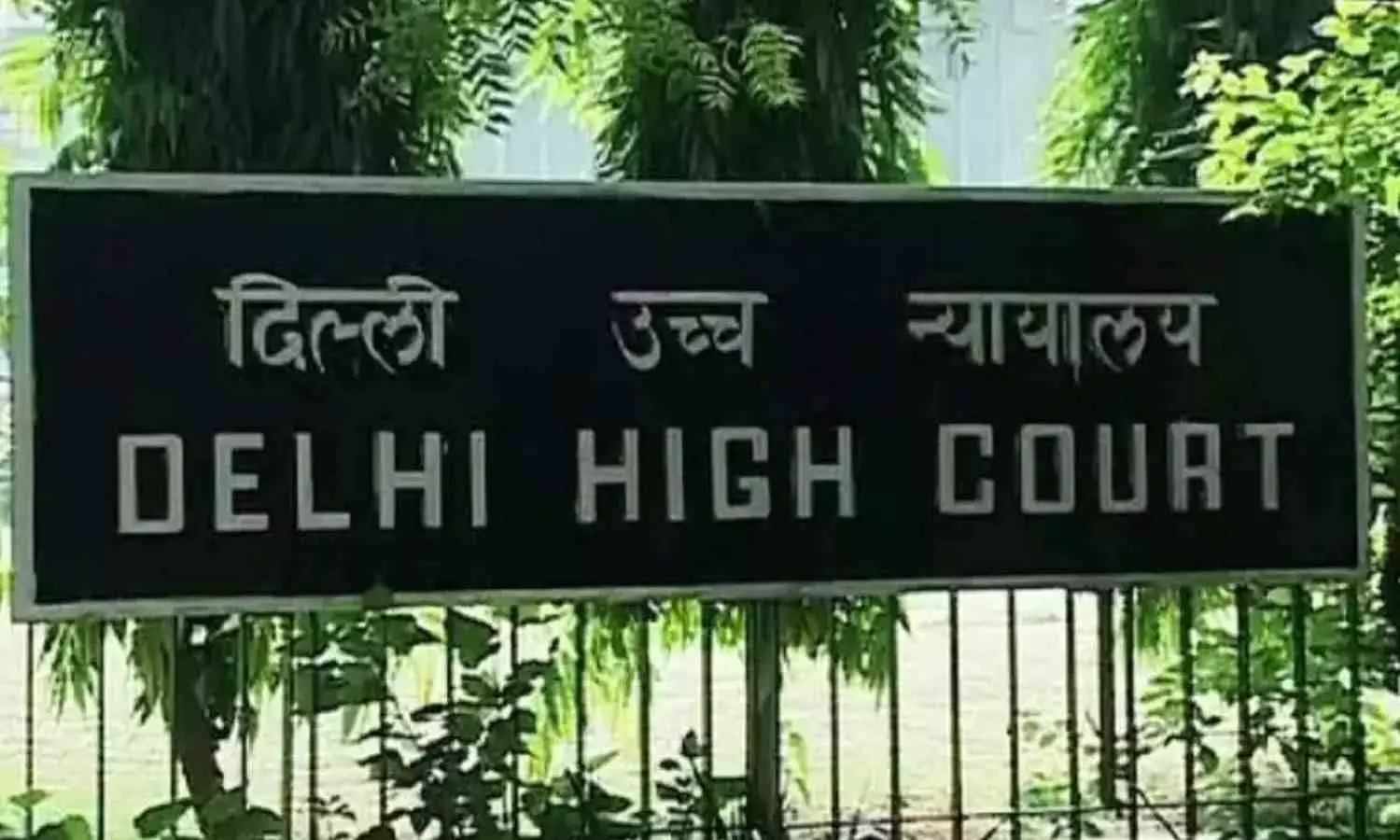Ketogenic diet may protect against stress experienced in the womb
Powered by WPeMatico
Powered by WPeMatico
Powered by WPeMatico
Powered by WPeMatico
Powered by WPeMatico

Thiruvananthapuram: Kerala Chief Minister Pinarayi Vijayan on Friday urged Prime Minister Narendra Modi to expedite the approval for establishing an All India Institute of Medical Sciences (AIIMS) at Kinaloor in Kozhikode district, which is the site already earmarked by the state government.
Speaking to reporters in Delhi, Vijayan confirmed that he had also made a request to Union Health Minister JP Nadda to expedite the final approval for setting up the premier medical institute. Kerala has been demanding an AIIMS for a decade.
According to a PTI report, the CM’s request to Modi and Nadda comes amidst Union Minister of State Suresh Gopi’s recent call for setting up an All India Institute of Medical Sciences (AIIMS) at Alappuzha.
Also Read:AIIMS for Kerala will be announced at the right time, place: JP Nadda
Gopi, the Union Minister of State for Petroleum, Natural Gas and Tourism, had recently said that he has identified a place in the coastal Alappuzha district for setting up an AIIMS, and if it’s not established there, he has a right to ask where it should come up.
When reporters pointed this out to the CM, he said it was better not to respond to such statements.
“We (Kerala) have only asked for setting up AIIMS at Kozhikode. That is the only site before us. So, that is where it has to be set up.
In addition to the AIIMS demand, the CM informed both the PM and the Health Minister that the state has sought permission for setting up an ICMR-National Institute for Geriatric Care and Healthy Ageing.
“We have already acquired land for it as per the central government’s instructions and if anything additional is required, we are ready to provide that as well,” the CM said.
He said that his request to Nadda, also contained details of the efforts made by the state to get the AIIMS sanctioned.
Vijayan said that Kerala has been demanding an AIIMS for a decade, and urged Nadda to take steps for the necessary clearances from the Finance Ministry.
While Vijayan met Union Finance Minister Nirmala Sitharaman on Thursday, he did not raise the AIIMS issue with her.
He said that the state has asked that the AIIMS project be included in the next phase of the Pradhan Mantri Swasthya Suraksha Yojana (PMSSY), issue official orders allocating the premier medical institute to Kerala and send a team to study whether the identified land was feasible for it, reports PTI.
Vijayan said that he explained to the PM and Nadda the importance of the matter and received a good response from them.
He said that the state has sought permission for setting up the National Institute for Geriatric Care and Healthy Ageing in view of its unique demographic structure and its increasing elderly population.
The objective is to make the institute India’s best centre for research, innovation, policy and service delivery in geriatric care and healthy ageing, for improving the health, dignity and quality of life of senior citizens, the Marxist veteran said.
“It will help address the urgent needs of the ageing population in the state and serve as a model for other countries going through similar demographic changes as India,” Vijayan said.
He contended that both the AIIMS and the National Institute for Geriatric Care and Healthy Ageing will complement each other.
“It is expected that the Centre will fulfil the assurances given to the state government,” the CM said.
Also Read:Kerala HC Seeks Clarification on AIIMS Site Selection in Kozhikode
Powered by WPeMatico

Uttar Pradesh: The Directorate General of Medical Education and Training (DGME) Uttar Pradesh has revised the state NEET 3rd round Counselling schedule for the academic year 2025 for admission to MBBS and BDS courses under the state quota in government, private medical, and dental colleges.
The UPDGME has released the revised schedule on its official website.
According to the revised schedule, the online registration and document upload process has already begun and will continue till October 13, 2025 (11:00 AM). Additionally, the candidates can deposit registration and security money till October 13 (2:00 PM).
Following this, the merit list will be declared on October 13, 2025, followed by the online choice filling process from October 14 (2:00 PM) to October 17 (11:00 AM). The seat allotment results will be announced on October 18 or 19, 2025. Below is the detailed revised schedule-
REVISED SCHEDULE
|
S.NO |
DESCRIPTION |
DATES |
TOTAL DAYS |
|
1 |
Online registration and document upload. |
Oct 6 (11 AM) – Oct 13 (11 AM). |
7 days |
|
2 |
Registration and security money deposit. |
Oct 6 (11 AM) – Oct 13 (2 PM). |
8 days |
|
3 |
Merit list declaration. |
Oct 13, 2025. |
1 day |
|
4 |
Online choice filling. |
Oct 14 (2 PM) – Oct 17 (11 AM). |
3 days |
|
5 |
Allotment result declaration. |
Oct 18/19, 2025. |
1 day |
|
6 |
Downloading of allotment letters & admission. |
Oct 24 – Oct 28, 2025 |
5 days |
To view the revised schedule, click the link below
Meanwhile, UPDGME has extended the last date for candidates to withdraw from their allotted seats under the first and second rounds of UP NEET UG 2025 counselling. According to the notice issued by the UPDGME in this regard, candidates who were allotted seats through online counselling in Round 1 and Round 2 and wish to surrender their seats can now do so until October 12, 2025 (up to 2:00 PM).
The extension provides an additional opportunity for candidates who have either already been admitted or are interested in withdrawing from their current MBBS/BDS seat. The notice emphasises that no withdrawal requests will be accepted after the revised deadline.
The decision to extend the withdrawal date aligns with the ongoing third round of UP NEET UG 2025 counselling, ensuring that candidates finalising their admissions have sufficient time to make their choices.
To view the notice, click the link below
Powered by WPeMatico

New Delhi: The Supreme Court has sought responses from the Union of India, the Drug Controller General of India (DCGI), and several leading pharmaceutical companies, including Bharat Serum and Vaccines, Cipla, Sun Pharma, Emcure, and Natco Pharma, on a public interest litigation questioning the continued manufacture and sale of Liposomal Amphotericin B, a drug originally cleared for emergency use during the Covid-19 pandemic.
According to a LiveLaw report, a Bench of Justices Vikram Nath and Sandeep Mehta on Friday issued notice to the Centre on the plea, which also calls for the destruction of existing stocks of the drug, citing expired authorizations and potential safety risks.
A Bench of Justices Vikram Nath and Sandeep Mehta sought responses from the Union of India, the Drug Controller General of India (DCGI), and several pharmaceutical companies, including Bharat Serum and Vaccines Ltd., Cipla, Sun Pharma, Emcure, and Natco Pharma, among others.
The PIL, filed by Rajendra Prasad through Advocate-on-Record Tushar Giri, alleges that these companies continue to manufacture and distribute the antifungal medication on the strength of emergency approvals granted under Section 26B of the Drugs and Cosmetics Act, 1940, during the height of the Covid-19 crisis in 2021.
The petitioner claims that the authorizations have long expired and that there is currently “no regulatory oversight” ensuring the drug’s quality or safety.
The plea seeks multiple directions, including production of records related to the emergency approvals, quashing of all manufacturing permissions, and an immediate halt to production, sale, and distribution of Liposomal Amphotericin B by the respondent firms.
It also urges the Court to direct the Union government to recall, seize, and safely destroy existing stocks of the drug as per prescribed safety protocols.
Powered by WPeMatico

New Delhi: Amid a chilling surge in child deaths linked to contaminated cough syrups, the Central Drugs Standard Control Organization (CDSCO) has ordered all State governments to submit a list of cough syrup manufacturers and launched a joint audit of these companies, a senior Health Ministry official confirmed on Thursday, October 9, 2025.
As per various news reports, the Central Drugs Standard Control Organization (CDSCO) is set to carry out testing, inspections, and audits of cough syrup manufacturers.
Earlier, the Medical Dialogues Team had reported the WHO had requested clarification from Indian authorities regarding whether the cough syrup linked to the deaths of children in India had been exported to other countries, official sources said, as reported by PTI.
In response to questions raised by the World Health Organization (WHO), the Central Drugs Standard Control Organization (CDSCO) has confirmed that three cough syrups, namely Coldrif, RespifreshTR, and ReLife, have been recalled, and none of the products were exported from India.
The children died in India over the past month after consuming cough medicine containing toxic diethylene glycol in quantities nearly 500 times the permissible limit, officials told Reuters. The deaths were all linked to the Coldrif medicine, which was banned after a test confirmed the presence of the chemical on October 2.
The Respifresh and RELIFE syrups also contain diethylene glycol, according to a public alert by Gujarat and other states on Wednesday that described it as “a toxic chemical that can cause serious poisoning, including kidney failure, neurological complications and even death, especially among children”.
The World Health Organization told Reuters it had received confirmation from India on Wednesday that three contaminated syrups had been identified, and none had been exported.
“WHO expresses deep concern over these developments and emphasizes… the regulatory gap in DEG/EG screening for domestically marketed medicines in India,” a spokesperson added by email, referring to diethylene glycol and ethylene glycol.
Details of the three tainted cough syrups:
COLDRIF
Linked to the deaths of children from Madhya Pradesh, who mostly died of kidney failure in a government hospital in another state.
Manufactured by Sresan Pharmaceuticals, based in Tamil Nadu.
Found to contain 48.6% of the toxic substance diethylene glycol (DEG), far exceeding the 0.1% permissible limit set by India and the WHO.
Produced in May 2025, with an expiry date of April 2027.
The syrup has been banned, and the company owner has been arrested.
RESPIFRESH TR
Not linked to any reported deaths.
Manufactured by Rednex Pharmaceuticals, based in Gujarat.
Contaminated with 1.342% DEG.
Produced in January 2025, with an expiry date of December 2026.
The syrup has been recalled, and the company has been ordered to halt production of all medical products.
RELIFE
Not linked to any reported deaths.
Manufactured by Shape Pharma, based in Gujarat, in January 2025, with an expiry date of December 2026.
Contaminated with 0.616% DEG.
The syrup has been recalled, and the company has been directed to stop production of all medical products.
“The CDSCO has now recommended cancellation of the manufacturing license for the company. If the raw material and the finished product were tested, we could have avoided the situation, an official told The Hindu.
The official further clarified that the recent child deaths in Rajasthan were not linked to contaminated cough syrup. “Child deaths in Rajasthan have been under scrutiny and have been medically attributed to meningitis, mucositis, and acute respiratory distress syndrome (ARDS),’’ he added.
Powered by WPeMatico

New Delhi: The Subject Expert Committee (SEC) under the Central Drugs Standard Control Organisation (CDSCO) has opined that Novo Nordisk India should submit further clarifications and supporting data for its proposed Phase IIIb clinical study for IcoSema (700 U/ml plus 2 mg/ml) Insulin Icodec 700 U/ml plus Semaglutide 2.0 mg/ml.
This came after the drug major Novo Nordisk India presented phase IIIb clinical study protocol no. NN1535-8377 Version No. 1.0 dated 30 – Apr – 2025.
The expert panel has saught Scientific justification for the use of Insulin in Type II diabetes patients who were not on prior oral antidiabetic (OAD) drugs. In addition, the panel asked the firm to clarify the inclusion criteria for HbA1c 7.0% (limit 7.0-10%) in the study protocol.
Furthermore, the committee suggested the firm submit Phase II study data for the use of Insulin in patients with Type II diabetes (HbA1c 7.0-10.0%).
IcoSema is an investigational, once-weekly combination therapy for type 2 diabetes that contains insulin icodec (700 U/mL) and semaglutide (2.0 mg/mL) in a single injection.
Active ingredients of IcoSema are
Insulin icodec: A novel, ultra-long-acting basal insulin analog designed for once-weekly administration.
Semaglutide: A long-acting GLP-1 (glucagon-like peptide-1) receptor agonist.
IcoSema combines the blood sugar-lowering effects of both insulin and a GLP-1 receptor agonist. Insulin icodec works by binding to albumin in the bloodstream, creating an inactive, circulating depot that provides a slow and continuous insulin action throughout the week.
Semaglutide mimics the natural hormone GLP-1, which stimulates insulin secretion, suppresses glucagon release, and slows gastric emptying in a glucose-dependent manner.
The combination therapy is intended for adults with type 2 diabetes whose condition is inadequately controlled with their current treatment regimen. Clinical trials have studied IcoSema in people previously treated with daily basal insulin or GLP-1 receptor agonists.
At the recent SEC meeting for endocrinology and metabolism, the expert panel reviewed the phase IIIb clinical study protocol no. NN1535-8377 Version No. 1.0 dated 30 – Apr – 2025, presented by Novo Nordisk India.
After detailed deliberation, the committee opined that the firm should submit the following for further review by the committee:
1. Scientific justification for use of Insulin in Type II diabetes patients who were not on prior OAD drugs.
2. Clarification for inclusion criteria for HbA1c 7.0% (limit 7.0-10%) in study protocol.
3. Phase-II study data for use of Insulin in Type II diabetes with patients (HbA1c 7.0-10.0%)
Powered by WPeMatico

New Delhi: The Delhi High Court has dismissed an appeal filed by Swiss drug major F. Hoffmann-La Roche AG and its Indian arm, challenging the order of a Single Judge that refused to restrain Natco Pharma Limited from manufacturing and selling Risdiplam, a drug used to treat Spinal Muscular Atrophy (SMA).
The Division Bench of Justice C. Hari Shankar and Justice Ajay Digpaul held that Roche’s species patent (IN 334397) for Risdiplam was prima facie vulnerable to invalidation under Section 64(1)(f) of the Patents Act, 1970, as being obvious in view of prior art disclosed in Roche’s own genus patent (WO 2013/119916 / US 9586955).
Risdiplam is admittedly manufactured and marketed by the appellants in various countries, including India, under the brand name EVRYSDI Risdiplam is an oral prescription medicine used for the treatment of Spinal Muscular Atrophy.
Roche, which manufactures Risdiplam under the brand name Evrysdi, alleged that Natco’s generic version infringed its subsisting Indian Patent IN 334397, valid until May 11, 2035. The company sought an interim injunction under Order XXXIX Rules 1 and 2 of the CPC, restraining Natco from selling the drug.
Roche contended that Risdiplam, though related to compounds described in its earlier genus patent, represented a distinct and novel invention deserving independent protection. It argued that the drug was not merely “covered” by the broad Markush formula of the genus patent but was a specific compound not disclosed or enabled therein.
The company submitted that the Single Judge had erred in equating “coverage” with “disclosure” and in holding the compound “obvious” without any concrete teaching or motivation to make such structural modification.
Roche emphasized that the substitution of a nitrogen atom (-N) for a carbon-hydrogen (-CH) group in the molecule involved a non-obvious inventive step and that the difference conferred significant therapeutic efficacy, making Risdiplam a new chemical entity under the law.
Natco, on the other hand, invoked Section 107(1) of the Patents Act to defend itself, arguing that Risdiplam was already covered and obvious from Roche’s earlier genus patent WO 2013/119916 / US 9586955, which disclosed a large set of similar compounds for treating Spinal Muscular Atrophy (SMA).
Natco maintained that the only structural difference between Risdiplam and Compound 809 of the genus patent was the replacement of a -CH radical with a nitrogen atom (-N), a well-known and predictable modification in medicinal chemistry based on Grimm’s Hydride Displacement Law.
It pointed out that four inventors were common to both the genus and species patents, showing that the later patent was a mere routine optimization aimed at extending exclusivity rather than a genuine innovation. The company therefore contended that the suit patent lacked an inventive step and was vulnerable to revocation under Section 64(1)(f).
The Division Bench agreed with the Single Judge’s view that Risdiplam was prima facie obvious to a person skilled in the art, particularly because the same inventors were involved in both patents.
“Something which is ‘obvious’ to a person skilled in the art would be ‘more obvious’ to the inventor of the genus patent, who would be ‘in the know’ of things,” the Bench observed.
The judges further held that allowing minor molecular substitutions to extend patent protection would amount to evergreening, contrary to the public interest in ensuring access to essential medicines.
The court stated, “
“By no means can an inventor be permitted, by making changes to an invented pharmaceutical preparation… to keep the invention out of the public domain beyond the period of life of the patent.”
While the Bench expressed reservations about whether Risdiplam lacked novelty under Section 64(1)(e), it found “no reason to interfere” with the Single Judge’s conclusion that the compound was obvious under Section 64(1)(f). The Bench reiterated that under the Wander Ltd. v Antox India Pvt Ltd principle, appellate courts should not interfere with discretionary orders unless the lower court’s findings are arbitrary or perverse. The Division Bench held;
“We do not deem this to be a fit case for interference with the impugned judgment of the learned Single Judge. The appeal is, accordingly, dismissed.”
With this, the Delhi High Court effectively upheld Natco Pharma’s right to continue manufacturing and marketing its generic version of Risdiplam pending the outcome of the main suit.
To view the official order, click the link below:
Powered by WPeMatico
